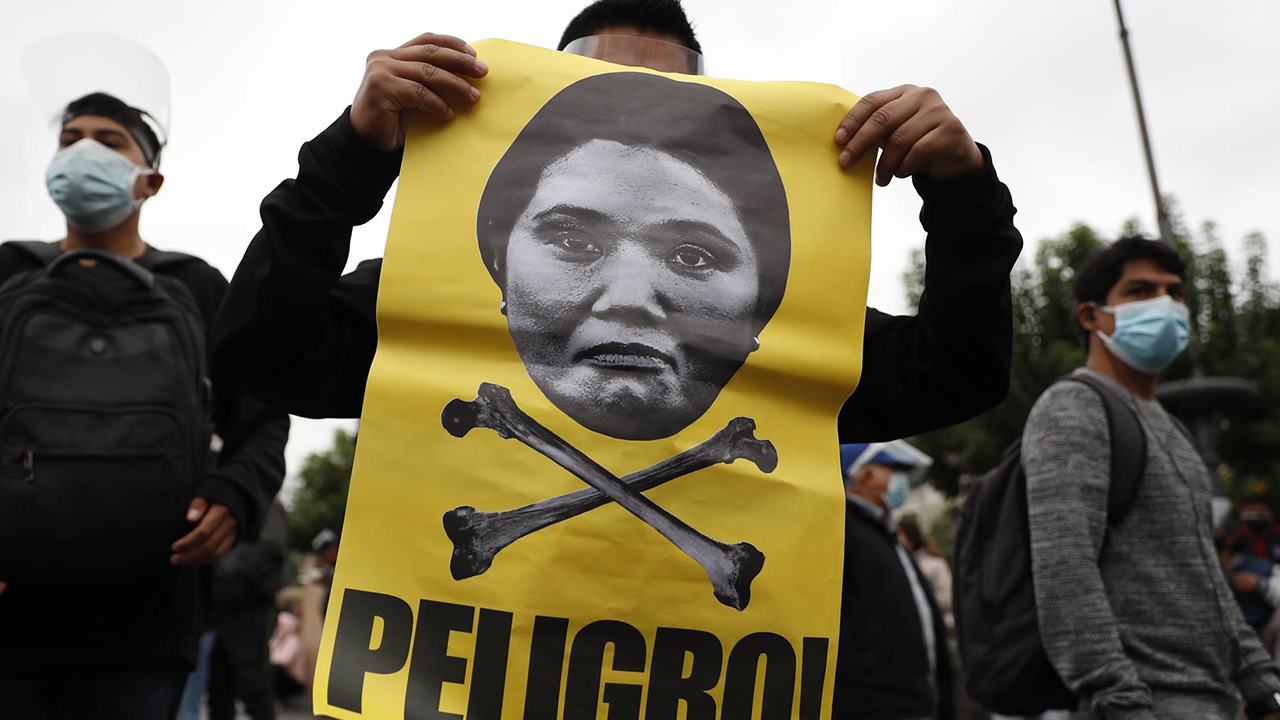RIO DE JANEIRO, BRAZIL – A brutal terrorist massacre, apparently caused by the remnants of the Shining Path in a remote and jungle region of Peru, burst with all crudeness into the polarized electoral campaign of the Andean country and brought to mind the episodes of the stark political violence of past decades.
Sources of the Joint Command of the Armed Forces confirmed the murder of 14 people – others raised the number of victims to 18 – among them two minors whose bodies had been burned in a remote village in the jungle valley of the Apurimac, Ene, and Mantaro rivers (VRAEM).

That area is the epicenter of cocaine cultivation and production in the country, where the state presence is fragile.
The massacre, which left crude images spread like wildfire on social networks, took place in an improvised place used as a bar and brothel by the local population, mostly dedicated to coca cultivation.
In this sense, the attack was identified by the Armed Forces as an action that the terrorists call “social cleansing”, as seems to be confirmed by a pamphlet supposedly left by the assassins in the place in which they claimed they need to clean Peru “of brothels, of degenerate homosexuals and lesbians, of drug addicts, of undisciplined individuals…”.
In this document, disseminated on social networks by Fernando Rospigliosi, the head of presidential candidate Keiko Fujimori’s campaign, the terrorists ask Peruvians not to vote in the June 6 elections. They also describe those who vote for the right-wing candidate as “traitors”.
Apparently, the remnants of the Shining Path, who persist in the area as bodyguards and partners in drug trafficking, had warned the owners of the premises to leave the place, and the attack occurred because of disobedience to their orders.
POLARIZED CAMPAIGN
Assassinations committed by the Shining Path are a widespread practice in Peruvian electoral periods; however, on this occasion, with the presidency in dispute between Pedro Castillo (far left) and Keiko Fujimori (authoritarian right) in the framework of a very polarized campaign, they take on special relevance.
Throughout the campaign, from the side of the political heiress of former president Alberto Fujimori (1990-2000) and several related media, attempts have been made to link Castillo and his party, Peru Libre, with the terrorist group.
Several congress members elected by the extreme left-wing organization are alleged to have links with the group. In fact, one of them, Guillermo Bermejo, is about to be tried for that accusation.
Castillo has not ceased to stress not only his rejection of terrorism but also the fact that he belonged to the peasant patrols, the rural militia that successfully fought the terrorist group during the hardest years of the Peruvian internal conflict (1980-2000) that left more than 69,000 dead, according to the final report of the Truth and Reconciliation Commission (CVR).
The candidate was one of the first to vehemently reject the attack as soon as he heard the news and asked for his respect for the victims and for the full weight of justice to be brought to bear on those responsible.
OPEN CONTROVERSY
The controversy over this attack and who benefits politically is open, particularly in social networks, which exploded in criticism and speculation about the attack.
Many people asked to treat the matter with calm, respect for the victims, and not to use the attack for political electoral purposes.
This was stated in declarations to the radio station RPP by former Interior Minister Ruben Vargas, who recalled that the ultimate goal of terrorism is “to generate the greatest possible impact in the media to cause fear and anxiety.” “We cannot fall into the logic of fear and the ‘red ghost’ and even less of the electoral exploitation of this tragedy,” said the politician.
However, there were already those who used this tragedy to attack or defend their candidates. Thus, among the first to publish the crude images and the pamphlets supposedly collected in the area were people linked to the pro-Fujimori campaign, even before the Armed Forces or the Police confirmed the attack.
Pedro Cateriano, former prime minister of Ollanta Humala, openly opposed to Castillo, published a tweet with images of the dead and an open question to the candidate doubting his capacity to fight terrorism.
On the opposite side, messages are circulating that point to the implicit connivance between the pro-Fujimori right-wing and Shining Path terrorism, which only acts in electoral periods when it can benefit the candidate, who claims the iron fist and the fight against terrorism as one of her signs of identity.

